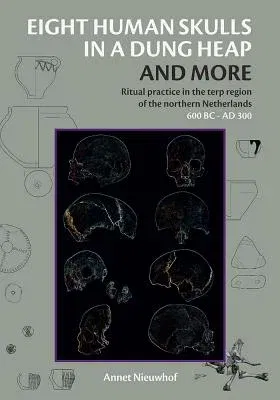Annet Nieuwhof
(Author)Eight Human Skulls in a Dung Heap and More: Ritual Practice in the Terp Region of the Northern Netherlands 600 BC - Ad 300Hardcover, 30 June 2015

Qty
1
Turbo
Ships in 2 - 3 days
In Stock
Free Delivery
Cash on Delivery
15 Days
Free Returns
Secure Checkout

Part of Series
Groningen Archaeological Studies
Print Length
447 pages
Language
English
Publisher
Barkhuis
Date Published
30 Jun 2015
ISBN-10
9491431846
ISBN-13
9789491431845
Description
Product Details
Author:
Book Format:
Hardcover
Country of Origin:
NL
Date Published:
30 June 2015
Dimensions:
29.97 x
23.62 x
3.05 cm
ISBN-10:
9491431846
ISBN-13:
9789491431845
Language:
English
Pages:
447
Publisher:
Weight:
2059.31 gm